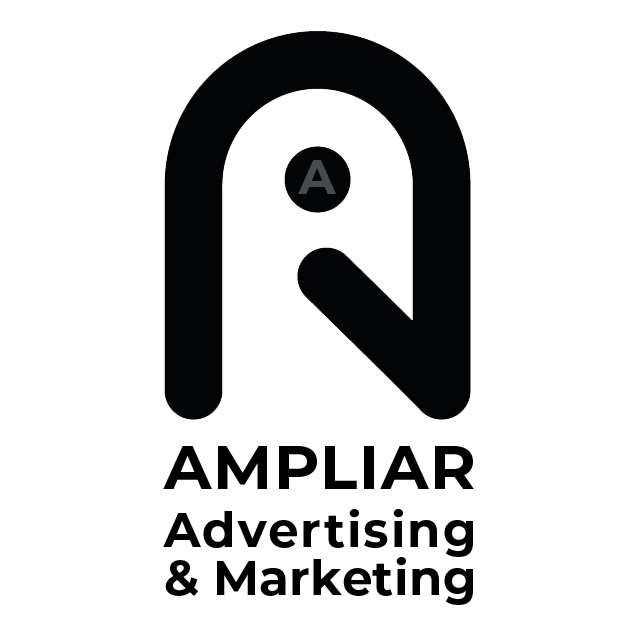Meta descriptions are a crucial element in any successful SEO campaign. They provide the first impression of your website to potential visitors and can greatly impact your click-through rate (CTR) from search engine results pages (SERPs). Crafting effective meta descriptions is an art that requires understanding the key elements and utilizing keywords strategically to create compelling copy. In this blog, we will cover everything you need to know about meta description best practices, including optimal length guidelines, creating unique descriptions for each page, and avoiding common mistakes. We also delve into case studies of successful meta description optimization and explore the future of meta descriptions, detailing how they can enhance your click-through rate for local SEO, ecommerce SEO, content marketing SEO, and paid advertising SEO optimization. Learn how to take your meta descriptions to the next level with our expert tips and tricks.
Understanding Meta Descriptions
Understanding the importance of meta descriptions is crucial for a great user experience. These small snippets provide a brief overview of a webpage’s content and significantly impact Google search results. Crafting good meta descriptions that align with the page content and search intent is an essential SEO strategy. Ensuring your meta descriptions include relevant keywords can improve organic traffic and attract potential visitors. The relevance of meta descriptions cannot be overstated in the fast-changing landscape of Google SERPs.
Definition and Importance in SEO
Meta descriptions, as HTML elements, play a vital role in summarizing a webpage’s content and influencing click-through rates. Crafting unique and compelling meta descriptions is crucial for providing important information, enhancing social sharing, and improving search rankings. This contributes to a good user experience and is a key element in any SEO strategy. Writing meta descriptions that are relevant to the page’s content and search intent is essential for organic traffic and visibility on Google search. Crafting great meta descriptions can elevate a small business’s presence in Google SERPs and enhance the overall search queries.
Meta Description vs Metadata: The Difference
Metadata encompasses a range of information about data, while meta descriptions specifically summarize webpage content. The elements within metadata include meta keywords, meta description, and title tags. Notably, meta descriptions significantly impact search snippet appearance and continue to hold relevance as a ranking factor. Crafting unique descriptions enhances the discoverability of specific pages by potential customers, contributing to a good user experience.
Crafting Effective Meta Descriptions

Crafting compelling meta descriptions involves creating concise, persuasive content within the character limit. Each description should offer a snippet of the page’s content, enticing users to click through. Utilizing keywords strategically enhances search rankings, while unique descriptions for each page contribute to better results. Ultimately, good meta descriptions provide relevant information that contributes to a great user experience and forms a crucial part of any SEO strategy.
Key Elements of Meta Descriptions
Crafting persuasive meta descriptions involves incorporating the target keyword, a compelling call-to-action or unique selling proposition, and ensuring an optimal length for search results. By strategically integrating relevant keywords, meta descriptions align with search intent and contribute to a great user experience. Emphasizing unique content in meta descriptions improves user engagement and supports SEO strategy, making them a critical element of a small business’s online presence. Well-crafted meta descriptions effectively communicate page content and enhance visibility on Google Search.
What is a meta description and why is it important for SEO?
A meta description is a brief summary of the content of a web page. It appears in search engine results pages as a snippet below the page title. A well-crafted meta description can improve click-through rates and attract more visitors to your website, making it an essential element of SEO.
Incorporating target keywords in meta descriptions aligns with search intent and improves SEO strategy. Keyword research helps in identifying relevant keywords for great meta descriptions. Avoiding keyword stuffing and prioritizing natural integration are crucial for good user experience and page ranking on Google Search. Conducting search term analysis assists in crafting keyword-rich descriptions within the HTML tag. Furthermore, utilizing similar descriptions across multiple pages must be avoided to maintain unique and effective meta descriptions.
Writing Compelling Copy
Crafting engaging meta descriptions involves capturing the essence of the page’s content in a concise and relevant manner. Encouraging user interaction and clicks is essential for a good meta description, which should mimic the page’s content and utilize specific, relevant keywords. By doing so, the meta description enhances search snippet relevance, contributing to a great user experience and aligning with an effective SEO strategy.

Meta Description Best Practices
Crafting effective meta descriptions plays a pivotal role in enhancing SEO strategy. Adhering to optimal length guidelines ensures your description is fully displayed on Google SERPs, contributing to good user experience. Creating unique and compelling meta descriptions for each page aligns with Google’s emphasis on providing relevant search results, ultimately improving click-through rates. Crafting unique meta descriptions for important pages can positively impact organic traffic, making it an essential element of any small business’s SEO strategy.
Adhering to Optimal Length Guidelines
Crafting a great meta description involves adhering to optimal length guidelines, as recommended by Google. The ideal meta description length is around 155-160 characters, ensuring full display in search results. This adherence is crucial for providing good user experience, as concise and relevant descriptions within the character limit enhance search snippet appearance. Exceeding the recommended length risks truncation in search results, impacting the effectiveness of the description. Ultimately, adhering to these guidelines is a critical component of any SEO strategy.
Creating Unique Descriptions for Each Page
Crafting distinct meta descriptions for individual pages plays a crucial role in preventing duplicate content issues and enhancing search snippet visibility. Tailoring meta descriptions to specific page content is key to aligning with search intent and supporting effective search result differentiation. These unique descriptions contribute to differentiating similar pages and improving search snippet relevance, aligning with Google’s emphasis on good user experience and effective SEO strategy.
Avoiding Common Mistakes
When creating meta descriptions, it’s crucial to ensure uniqueness for each page to avoid duplication issues. Keeping the character length within 160 characters is essential for effective display in search results. When using relevant keywords, make sure that the meta description aligns seamlessly with the content without any keyword stuffing. Avoid using a meta description tag that closely resembles the title tag, as this could potentially confuse search engines. Instead, focus on providing valuable and relevant information to improve user experience and search snippet appearance.

Meta Description Testing Tools
When optimizing meta descriptions, SEO practitioners can benefit from utilizing specialized tools to refine and enhance their strategies. These tools offer valuable insights into meta description length, potential impact on search results, and alignment with search intent, contributing to a great meta description and good user experience. Additionally, they facilitate the analysis and optimization of meta descriptions for better search rankings, ultimately supporting an effective SEO strategy. The availability of free trials for these tools makes it convenient for small businesses to assess their efficiency before incorporating them into their own meta descriptions.
Yoast
When it comes to optimizing your meta descriptions for SEO, tools like Yoast SEO and SEMrush can be incredibly valuable. By using these tools, you can analyze and fine-tune your meta descriptions to align with your SEO strategy, ensuring a great user experience. Incorporating action-oriented language and relevant keywords while adhering to optimal length guidelines is crucial. Additionally, monitoring and adjusting your meta descriptions based on performance data is essential for maintaining a strong presence in Google search results.
SEMrush
When crafting compelling meta descriptions, it’s essential to consider the impact on SEO and click-through rates. Incorporating target keywords strategically can enhance SEO strategy without appearing as keyword stuffing. Optimizing meta descriptions for social media can contribute to a great user experience and improve click-through rates. Utilizing tools and plugins for analyzing and creating meta descriptions, such as Google Trends and Google SERPs, can greatly aid in improving search visibility and overall performance.
Optimizing Meta Descriptions for Different Scenarios
Crafting compelling meta descriptions tailored to your website’s specific pages, such as the homepage, product pages, and blog posts, is essential for a good user experience and an effective SEO strategy. Incorporating relevant keywords and a call-to-action can greatly enhance your meta descriptions’ performance in Google search results. To avoid duplicate content issues, it’s crucial to create unique meta descriptions for each page. Regularly testing and refining your meta descriptions based on search queries and Google trends will help you stay ahead in the Google SERPs.
Local SEO Optimization
When optimizing for local search, it’s essential to include your location in the meta descriptions. This helps improve visibility in local searches. Utilizing long-tail keywords that align with your specific offerings can significantly impact local SEO. Craft clear, concise meta descriptions that accurately represent your content, and avoid misleading language or keyword stuffing. Testing different descriptions allows you to identify the most effective ones, driving higher engagement and traffic. Neglecting local optimization can negatively impact search rankings and reputation.
Ecommerce SEO Optimization
Crafting compelling meta descriptions for your ecommerce website can significantly impact your click-through rate and drive more traffic. Use keywords strategically to help search engines understand your page content and enhance user experience. Keep the meta descriptions concise, relevant, and reflective of your page content. Testing different variations will optimize your SEO strategy for small business growth. Embrace Google trends and SERPs insights to refine your own meta descriptions and stay ahead in Google search queries.
Content Marketing SEO Optimization
Content marketing and SEO go hand in hand, playing a crucial role in enhancing a website’s visibility and driving organic traffic. By strategically incorporating NLP terms like “good user experience,” “seo strategy,” and “google search” into your content, you can optimize your pages for improved discoverability and user engagement. Leveraging meta tags and HTML tags effectively, small businesses can establish a strong online presence and compete in Google SERPs. Crafting compelling meta descriptions aligned with search queries and Google trends is essential for a successful SEO strategy.
Paid Advertising SEO Optimization
When it comes to paid advertising, integrating SEO strategies is crucial for maximizing visibility on Google search and improving the user experience. Utilizing relevant meta tags and HTML tags in paid ads can greatly impact a small business’s online presence. By crafting effective meta descriptions aligned with Google trends and search queries, businesses can ensure their paid ads stand out on the Google SERPs. Implementing these SEO optimization techniques can significantly enhance the performance of paid advertising campaigns.
Case Studies of Successful Meta Description Optimization
Case Study 1 illustrates the impact of crafting a great meta description, resulting in a significant increase in click-through rate (CTR) and improved user experience. Similarly, Case Study 2 shows how strategic meta description optimization aligned with broader SEO strategy led to enhanced visibility in Google search results, especially for small businesses. Both cases highlight the importance of tailored meta descriptions, leveraging HTML tags, and utilizing Google Trends and SERPs to align with search queries. These successful outcomes demonstrate the pivotal role of meta descriptions in driving organic traffic and maximizing search engine visibility.
Case Study 1 (Brief Overview)
Crafting compelling meta descriptions is an essential aspect of SEO strategy. A well-crafted meta description can significantly improve the click-through rate and convince users to visit your webpage. It plays a vital role in enhancing user experience and driving organic traffic by aligning with search intent. Unique meta descriptions for important pages are crucial for attracting potential customers and standing out in Google search results. Embracing great meta description practices is key for small businesses looking to boost their online visibility.
Case Study 2 (Brief Overview)
Case study 2 illustrates the impact of persuasive meta descriptions on search rankings. Conducting A/B tests on meta descriptions can pinpoint the most effective ones for specific pages. Optimizing meta descriptions can elevate visibility in search engine results, while incorporating relevant keywords enhances content relevance for search terms. Tailoring meta descriptions to search intent can significantly boost CTR and conversions, forming a crucial aspect of any SEO strategy.
The Future of Meta Descriptions
The Future of Meta Descriptions remains pivotal in search result previews. With evolving search engine algorithms, meta descriptions must become more relevant and engaging, adapting to changing user search behavior. Integration of rich media like images could enhance user experience. Personalizing meta descriptions based on user demographics may soon play a critical role. Adapting to Google trends and understanding search queries will be an essential part of any good SEO strategy.
How can Meta Descriptions enhance your click-through rate (CTR)?
Meta descriptions play a crucial role in enhancing your click-through rate (CTR). By crafting compelling and accurate meta descriptions that incorporate the target keyword, you can entice users to click through to your web pages. Engaging meta descriptions also increase social sharing and organic traffic, making them essential for maximizing CTR potential.
It’s about Information
Meta descriptions are a crucial part of your SEO strategy. They provide a brief summary of what your page is about, enticing users to click and visit your website. By following best practices and optimizing your meta descriptions, you can improve your click-through rate and drive more traffic to your site.
Crafting effective meta descriptions involves strategically utilizing keywords and writing compelling copy that captures the reader’s attention. It’s important to adhere to optimal length guidelines and create unique descriptions for each page. Avoid common mistakes like keyword stuffing or using duplicate descriptions.
To optimize meta descriptions for different scenarios, consider implementing local SEO optimization, ecommerce SEO optimization, content marketing SEO optimization, and paid advertising SEO optimization techniques. Case studies have shown the success of meta description optimization in improving CTR and driving more organic traffic. By implementing these strategies, you can enhance your website’s visibility and attract more visitors. In the future, meta descriptions will continue to play a crucial role in driving organic traffic and improving user engagement.
Stay up to date with the latest trends and developments in meta description optimization to stay ahead of the competition. Contact Ampliar Advertising & Marketing today to talk about how we can help your business.


